Water: Early Warning for Conflict or Catalyst for Peace?
On the Tibetan Plateau, where a whim of nature created the highest points on Earth, many of the world’s major rivers are born. Each day their flows bring life to more than a billion people downstream in Asia, the planet’s most populous region.
As we watch the headlines in an age of shifting water supplies, we may see a future filled with conflict and war over water resources, flows and quality.
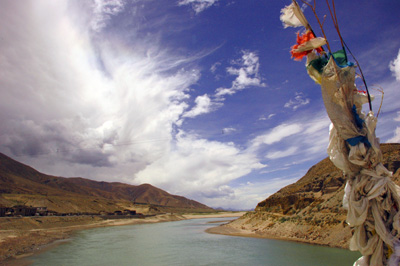
For example, we report today at Circle of Blue’s WaterNews the water-strategic importance of the Tibetan Plateau. It doesn’t take much to imagine the stress and potential for conflict downstream, particularly with China’s propensity for hydrological engineering.
However, flip the perspective 180 degrees and we may have seeds for some of the greatest collaborations and cooperative opportunities in history. This according to an essay by Karin Bencala and Dr. Geoffrey Dabelko published Tuesday in the Journal of International Affairs.
In the Middle East, for example, “Water and sanitation investments are pitched as providing peace dividends,” according to the essay, Water Wars: Obscuring Opportunities. Dabelko directs the Woodrow Wilson International Center for Scholars Environmental Change and Security Program; Bencala is program assistant.
True, the planet’s water challenges are great, the situation grim. As Circle of Blue reported last year, drought and poor water management are spurring immigration to the United States from Mexican agrarian communities. Similarly, Inner Mongolian herders face desertification and relocation, and as glaciers retreat, Peruvian pastoralists are forced to move to the city with few urban survival skills. The health statistics are even more numbing: nearly 2 million children die each year from water-related diseases.
Write Bencala and Dabelko:
In parallel, Bencala and Dabelko point out, water supplies and meteorological patterns can be indicators for potential conflict, and offer opportunities to generate proactive peacemaking.
According to analysis conducted in 2005 by Marc Levy, Charles Vorosmarty and Nils Petter Gleditsch: “…at the global scale, there is a highly significant relationship between rainfall deviations and the likelihood of outbreak of a high-intensity internal war. When rainfall is significantly below normal, the likelihood of conflict outbreak is significantly elevated.”
Dr. Vorosmarty and I co-presented the session on water at the Aspen Environment Forum in March. During our session, he noted with irony that as we face these great challenges, we are in many cases allowing our global water monitoring capabilities to decline. This becomes particularly notable as comprehensive monitoring and research could offer indicators — a kind of early warning system — for proactive response to potential hot spots, and turn them into peacemaking opportunities.
It’s precisely water’s unpredictablity — combined with the speed of political and environmental change, and the prevalence of bombastic commentary — that encourage quick judgments and poor investments, explain Bencala and Dabelko.
Is there hope? Bencala and Dabelko propose that we take proactive, collaborative approaches that avoid the pitfalls of bad policy and the 24-7 news cycle, which so often ignore long-term, slow-to-develop solutions.
That’s the rub. Politicians, advocates and the media — and most of us — are driven by crises, not slow fuses. China and Tibet may be in the hot seat, and most don’t predict an easy resolution to tension and strife anytime soon. Yet water management decisions on the Tibetan Plateau will affect billions of people for generations. China and Tibet are are not alone: any number of regions, from Israel to Mexico to the United States to Peru to Sub-Saharan Africa, are struggling with water scarcity. In each case, perhaps those dark clouds can bring a gentle rain and nurture the seeds of peace.
J. Carl Ganter is co-founder and managing director of Circle of Blue. He is a journalist and photojournalist, recipient of the Rockefeller Foundation Centennial Innovation Award, and an Explorers Club Fellow.

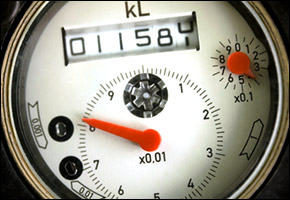
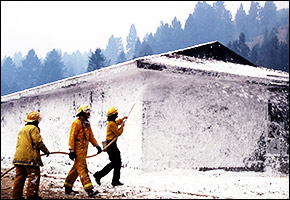

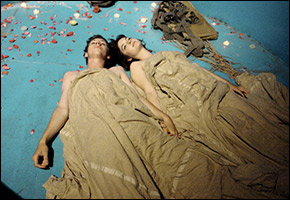


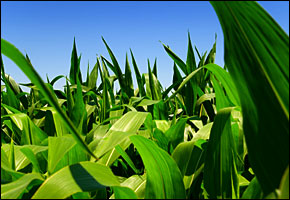
Leave a Reply
Want to join the discussion?Feel free to contribute!